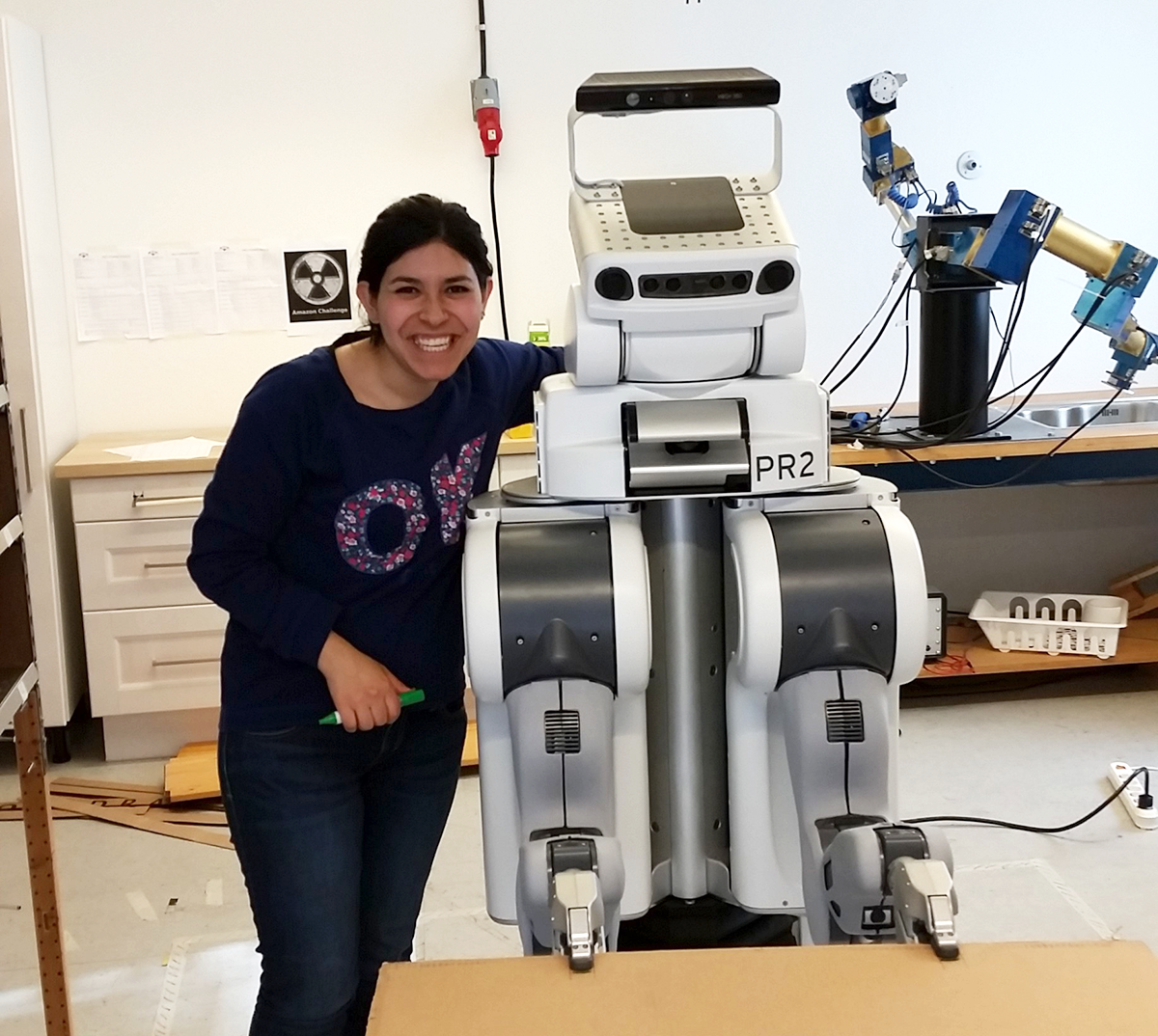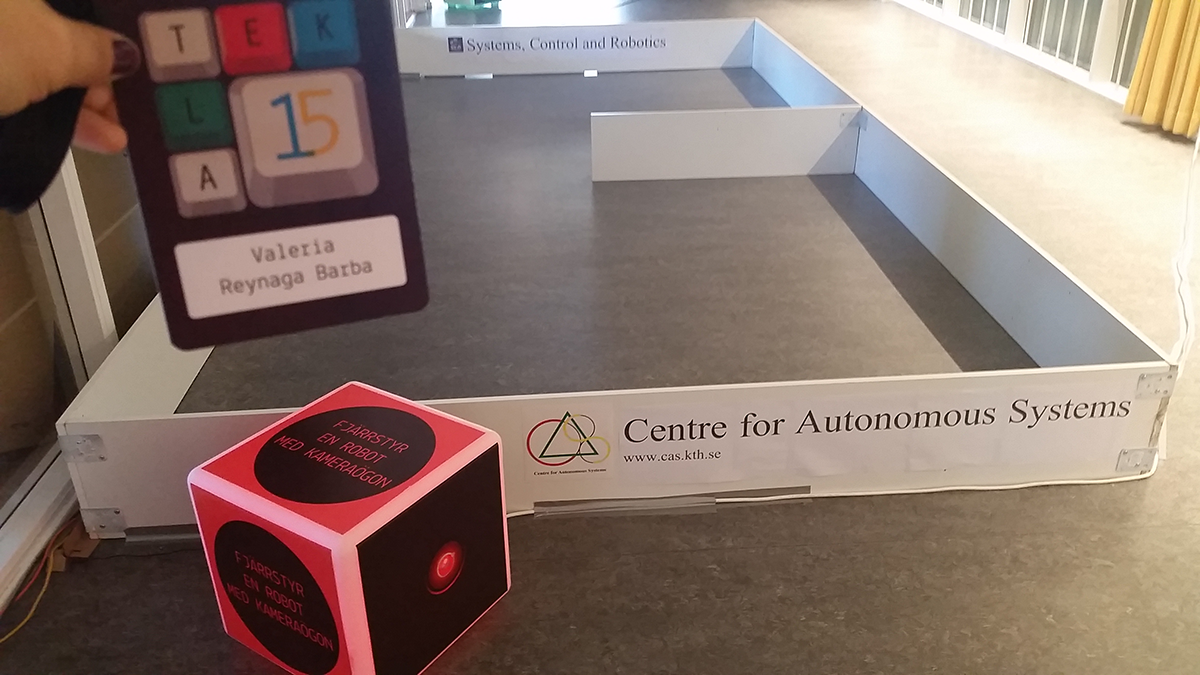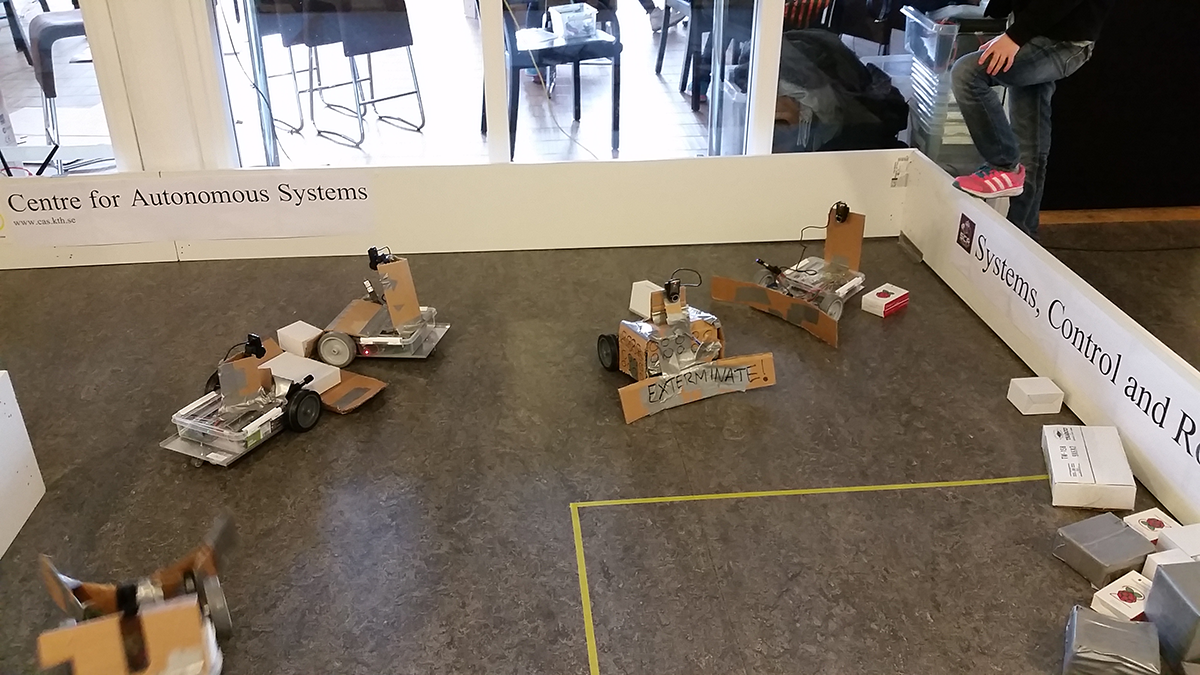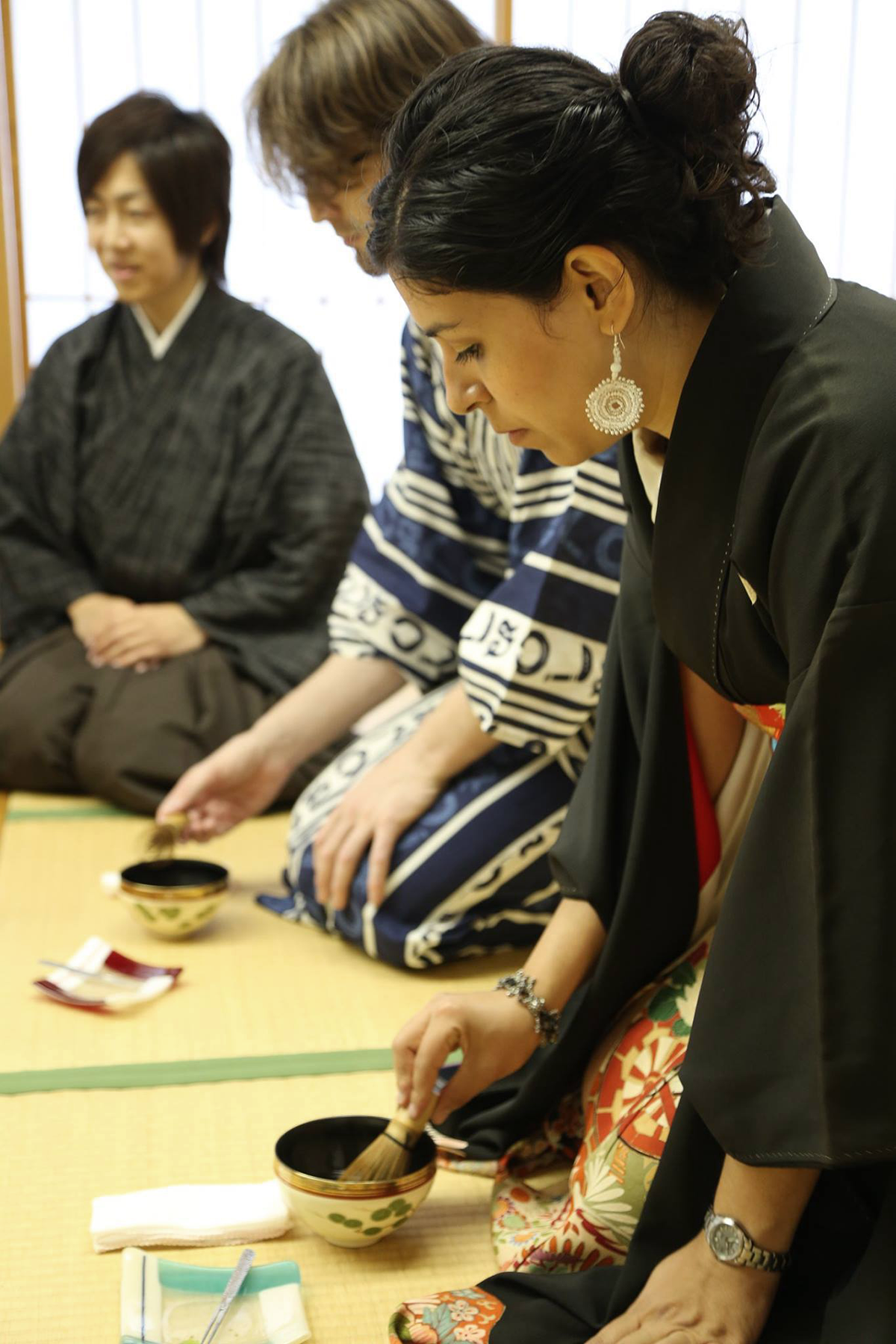Valeria really enjoys the collaboration aspect of her work at Scania
Valeria Reynaga-Barba graduated from the master’s programme in Systems, Control and Robotics in 2015. She now works in the R&D department of Scania in Stockholm.

Hi Valeria, what are you working with at the moment?
I am working at Scania in the R&D department. I am currently working with developing a test automation framework for the powertrain testing department. The framework is developed mostly in Python, but some components are written in CSharp. This framework allows executing automated tests for the software that controls the engine, the gearbox and the aftertreatment system in a simulated environment. By using python commands, the tester can manipulate the simulated inputs to the system, for example they can override the temperature of the engine to see how the software reacts and if that reaction is correct.
What can a regular day look like at your job?
I usually start my day by having a daily meeting where we talk about what my team and I will work with during the day. Then we have a little coffee break where we mingle with other teams. Then I start my daily tasks which can be implementing new features or fixing bugs or reviewing my colleague's code. There is a lot of collaboration with different people which I really enjoy.
Have you worked with anything else since you graduated?
I got my first job as a consultant in a company called Alten in Gothenburg, my first assignment was at Ericsson in the R&D department. I worked as a function tester for their Evolved Packet Gateway (EPG) software. I held that position for over a year and decided to move back to Stockholm. I asked for help to transfer within the consulting company which was a really smooth transition. My next assignment in Stockholm was as a test developer at Scania for the software that controls the engine.
Why did you choose this programme at KTH?
I chose it because it had courses that I wanted to try out within the field of robotics which I hadn't found in other robotics programmes, and I chose KTH because it looked beautiful in the pictures.
Are there any insights or knowledge you acquired during your studies that have been particularly useful for you in your career?
I can't pinpoint one thing because I took courses in many fields, so I ended up knowing a little about image processing, a little about control systems, a little about applied estimation, a little about machine learning. This in turn helps me understand a lot about how the technology around me actually works; one example is self-driving cars - I know what technologies are involved and I understand why there are no self-driving cars without a driver behind the wheel.
What were the best aspects of your studies at KTH?
I loved studying at KTH, I met great people and friends that I still see almost every week (even 4 years after graduating). In our programme we had seminars where we had discussions about many things, one discussion was that one expectation of the programme was not being met - there weren't enough hands-on courses. So, the head of the programme decided to create a hands-on course where the goal would be to make a self-balancing robot. He offered me and another student a summer job to create the course and prepare the material that the students would eventually use to make a robot. So, I also became a teaching assistant on the course, which was very welcome extra income ;)

I also liked the fact that we had a lot of resources available. For example, for my master’s thesis I worked with a full-sized robot (a PR2) for my investigation. We also got to build a robot for a project course where we used Kinnect sensors for image processing.
And finally, one more thing I loved was being able to help organize activities for the TEKLA festival, which is an event held to engage girls in technology. I actually got to see the artist Robyn at the festival. In this activity, the girls built their own robots out of cardboard and programmed them to be remote controlled. At the end there was a competition moving boxes from one place to another. It was a lot of fun!


What is your best memory from your time at KTH?
So many great things happened for me at KTH. But one that sticks out is when I went to Japan! I went there for a Robotics summer programme at Tohoku University along with 6 other students from KTH. The summer programme was meant to give us a little insight into Japanese culture and also into robotics at the university. The programme lasted 2 weeks in which we listened to lectures and did a small project that we presented at the end of the programme. We also took part in cultural activities like dressing in kimonos and take part in a tea ceremony. I had a great time and met a lot of interesting people there. The best part is that KTH offered students a scholarship to pay for the plane ticket, and the Japanese university (Tohoku University) offered a scholarship for expenses for the time we would be there, and they also took care of accommodation, so it was pretty great.

What are your plans for the future?
My plans are to stay in Sweden, to keep learning and to keep having fun at work.
What would you say to a student thinking of applying for this programme?
The robotics programme was a very challenging and very cool programme, but it could become very broad for some people (like me). At the end, I felt I could work anywhere, but the people hiring needed to see a narrow skillset, so it was hard for me to know which jobs to apply for and what to say to convince them that I really could do almost anything. A tip for you if you wish to find a job in Sweden after university: it is much easier if you do your master’s thesis at a company. The people I knew who did their thesis at a company usually got a job there afterwards, whereas the people who did it at university, struggled more. And networking helps! Swedish companies have bonuses for employees who recommend people to their companies, so you could help a friend get a job or a friend could help you.
